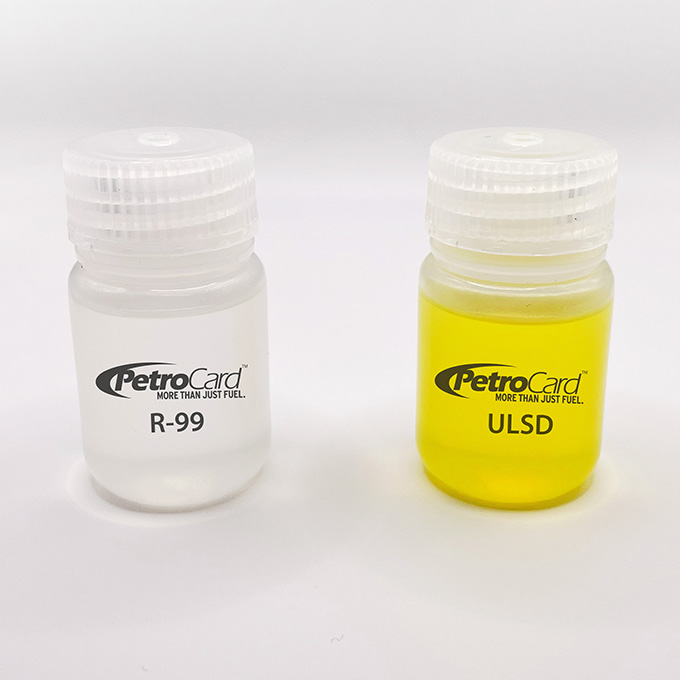Renewable Diesel
PetroCard is excited to share that we are now providing renewable diesel (R-99) at select cardlock stations. Renewable diesel is also available for full truck and trailer loads, tank wagon deliveries, and truck to truck on-site mobile fueling in Oregon and Washington. As a leader in commercial fuels, we are proud to be the first distributor of renewable diesel in Washington state.
Renewable diesel is a high-quality diesel made from renewable materials that do not release new carbon into the atmosphere. It has the same molecular composition as petroleum diesel and meets the same ASTM standards (D975).

RENEWABLE DIESEL VS BIODIESEL
Biodiesel and renewable diesel have different manufacturing processes that result in products with different molecular structures—biodiesel is a methyl-ester and renewable diesel is a hydrocarbon. There is no limit for the amount of renewable diesel that can be blended with petroleum diesel because they are chemically identical. Renewable diesel is clear and has no smell. It has a high flash point and zero aromatics which makes for a safer and more pleasant working environment.
MORE EFFICIENT ENGINE
With a significantly higher cetane than biodiesel, renewable diesel is a premium diesel that allows engines to burn the fuel better than regular diesel, improving performance. The higher cetane also leads to enhanced engine combustion for better burning fuel. This means a smoother-running, quieter engine, as well as a rapid cold start for better cold-weather performance.

EMISSIONS BENEFITS
Using renewable diesel can cut lifecycle greenhouse gas emissions up to 75% depending on what materials it is made from. Waste products such as tallow and used cooking oil have the greatest reductions while vegetable oils are slightly less. Renewable diesel has a higher cetane value than petroleum diesel, which means it combusts more completely in an engine. This results in a substantial reduction in tailpipe pollution, such as particulate matter, nitrogen oxides, total hydrocarbons, and carbon monoxide.
ADDITIONAL BENEFITS
- Higher cetane value than biodiesel
- Same fuel economy or power as petroleum diesel
- Produces a much cleaner exhaust and dramatically reduces the need for regeneration in vehicles with particulate filters, which in turn reduces maintenance costs for fleet owners
- Does not contain oxygen, which avoids problems that biodiesel has with freezing, storage, and algae growth
- Is made from products that would otherwise be sent to a landfill
Renewable Diesel Downloadable PDF
Related Articles
Port of Tacoma Switches to Renewable Diesel
PetroCard Drives Sustainable Fuel Solutions and Economic Growth in the Pacific Northwest